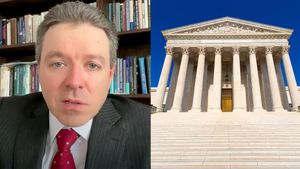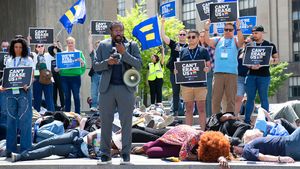Voices
As Trump's economy tanks and the climate burns, will we finally wake up this Memorial Day?

shutterstock creative
The U.S. is a country that too often treats foresight as a nuisance rather than a necessity, and the question isn't whether we've been warned; it's whether we care, writes John Casey.
Opinion: Will Americans finally understand what's happening because of Trump? writes John Casey.
May 24 2025 9:09 AM EST
May 26 2025 2:33 AM EST













































































